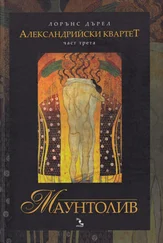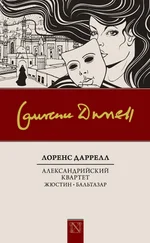Лоренс Даррелл - Prospero's Cell
Здесь есть возможность читать онлайн «Лоренс Даррелл - Prospero's Cell» весь текст электронной книги совершенно бесплатно (целиком полную версию без сокращений). В некоторых случаях можно слушать аудио, скачать через торрент в формате fb2 и присутствует краткое содержание. Жанр: Проза, на английском языке. Описание произведения, (предисловие) а так же отзывы посетителей доступны на портале библиотеки ЛибКат.
- Название:Prospero's Cell
- Автор:
- Жанр:
- Год:неизвестен
- ISBN:нет данных
- Рейтинг книги:4 / 5. Голосов: 2
-
Избранное:Добавить в избранное
- Отзывы:
-
Ваша оценка:
- 80
- 1
- 2
- 3
- 4
- 5
Prospero's Cell: краткое содержание, описание и аннотация
Предлагаем к чтению аннотацию, описание, краткое содержание или предисловие (зависит от того, что написал сам автор книги «Prospero's Cell»). Если вы не нашли необходимую информацию о книге — напишите в комментариях, мы постараемся отыскать её.
Prospero's Cell — читать онлайн бесплатно полную книгу (весь текст) целиком
Ниже представлен текст книги, разбитый по страницам. Система сохранения места последней прочитанной страницы, позволяет с удобством читать онлайн бесплатно книгу «Prospero's Cell», без необходимости каждый раз заново искать на чём Вы остановились. Поставьте закладку, и сможете в любой момент перейти на страницу, на которой закончили чтение.
Интервал:
Закладка:
20.9.37
It is one of the peculiar sentimentalities of the historian, this perpetual desire to trace places and origins by the shallow facts of romance. Fano, a few hours north of Paleocastrizza, is supposed to be Calypso's island—'the sea-girt isle set with trees'. Corcyra, then, is the home of the oar-loving Phaecians, and the place of Ulysses' meeting with Nausicaa. It is of course the final unkindness that the few scanty facts in Homer's record of the adventure do not offer the historian any help. For Ulysses on his raft, helped by a fair wind, took eighteen days to cover the few sea-miles separating Fano and Corcyra. At least if one is to be browbeaten by such absurdities. Zarian has effectively disposed of this kind of thing in his essay on Cowardice Among Historians, from which Theodore has translated the following passage: 'We refuse to be confounded by facts like these. Firstly it is necessary to this enchanted island that its landscape should be sweetened by such a fantasy, and secondly the Ancient Greeks had no sense either of time or distance. No reliance can be placed on their measurements, just as no reliance can be placed on the modern Greeks when they are dealing with space and time. Among the peasants to-day the duration of a cigarette is used to record distance in space. A peasant, asked how far a village is will reply: 'Two cigarettes.' If you reply that you do not smoke he will, with difficulty, hunt about in his mind for the words 'hours' or 'minutes', but it will be quite obvious from his use of them that he has only a very faint conception of what they mean. I maintain that the same holds true of the Ancient Greeks. Deft at the delineation of a psychology which has remained constant until to-day, Homer was all at sea when it came to accurate fact. Thus we are prepared to convict Homer of normal Greek mendacity rather than admit the suggestion that Ulysses did not land in this wave-washed cove, his skin bleached and worn like an old seashell from the exposure to the elements.'
To the lovers of Paleocastrizza this passage will make a certain appeal; but perhaps this emphasis on Greek character will seem a little wearisome to those whose only interest in Greece begins and ends among the broken columns of prehistory. After all, one might say, what contact could exist between the refined and isolated life of Ancient Greece, and the haphazard life of the modern Greek living in the shadow of Europe, under the inferiority-complex of the top hat? One incident will provide an answer.
Anastasius knows that I am collecting peasant stories; the lunch hour of the workman is the time for smoking, lounging and storytelling, and from time to time when his work brings him into contact with the masons and piasterers of Vigla up the hill, he occasionally comes home with a story about St. Corcyra, or the tale of a haunted well.
Last week we were aware, during the evening, of an unusual disturbance in the family next door. Instead of retiring early to bed, the little oil lamp was burning until after midnight. We heard voices — the voice of Sky in particular — talking and laughing. There was a note of excitement; and the drone of Helen's voice reading aloud. It was unusual for them to stay up late and waste lamp oil, and it was particularly unusual for the children to be awake late.
Next morning Anastasius, still unshaven, appeared at the breakfast table and said with some enthusiasm that he wished my Greek were good enough for him to relate me an 'extraordinary' story; but it was rather complicated in its details. It was about a man called Odysseus who was washed up on an island. As he spoke I noticed that he was holding a small book crumpled in his hand. He handed it to me. It was a first-form primer as used by the village school; it was an account of the Odyssey written in very simple demotic Greek for schools. Little Sky, he explained, had gone to school for the first time the day before, and had returned home at night with this book. In helping her read the first chapter he had suddenly found himself reading the story of Ulysses for the first time. To be sure, he had heard of Homer, but even now there seemed to be little connection in his mind between this delightful tale which had kept the whole family up until after midnight, and the revered name. 'It is such a pity,' he kept repeating, 'that you will not understand it. It is one of the best things I have ever heard — this fable ([Greek]).'
When I told him as well as I could that I had already heard the story he was extremely doubtful.
'But the books,' he said, 'are printed in Athens.' 'Yes, but the story is very old. In schools in England the children are made to read it.'
'About Odysseus?' 'Himself.' 'And Penelope?' 'All the same people.'
He looked so doubtful and unconvinced that I took him into the drawing-room and found the big English translation of the Odyssey with the ancient Greek medallions on the cover. He spelt out the name of Homer and shook his head uneasily.
'I don't understand,' he said uneasily. 'Then is the story true?' 'Quite true,' I said. 'When Odysseus reached here from Fano 'What is that?' he said eagerly. 'What is that?' 'Don't you know that it was here that Nausicaa lived, that the palace of the King was in Corcyra?'
'Before God?' 'Before God. You know Paleocastrizza?' 'Yes.' 'You know the first of the three bays, before the hotel?' 'Yes.' 'There they met. Odysseus arrived there from Fano where at that time Calypso lived.'
His concern and pleasure were delightful to watch. He stood uncertainly in the doorway holding the primer in his hand, not knowing what to say. 'I do not understand,' he said once more. 'It is very strange.'
Later I saw him walk down the cobbled path to where old Father Nicholas sat on a chair, his blue trousered legs set apart manfully. His stick lay across his right knee. On his left knee he was balancing a plate of bread and onions. I saw Anastasius showing him the little book and repeating what I had told him. Two days later he asked me on the next trip round the island to take him and Sky, because he wanted to see the place where Odysseus had been washed up.
25.9.37
Kassopi, among the other candidates, has a style entirely its own. In spring, meadows back it, starred with the foam of wild flowers. The village finds its axis in a giant tree whose shadow falls equally upon the tavern and the church. A good harbour, Kassopi is the port of call for the carbide fishers, and under the ancient fortress the waves shatter themselves upon ledges of clean granite and arcs of dazzling pebbles. Empty beaches to the north and south stun you by their silence and emptiness, and the egg-like perfection of the pebbles. Here and there, in patches of sand, you may see the weird ideograms left by the feet of herring-gulls, the only visitors. Visitors from Rome came here in the past for summers of indolence and solitude. Tiberius, it is said, had a summer villa here, now swallowed by the sea; and here the mad flabby Nero (who had translated himself from a weak human being into a symbol of kingship and all its evils) sang and danced horribly at the ancient altar to Zeus. Tibullus, Cato and the tedious Cicero passed down this channel on the way to Dyrrachium.
Kassopi must be seen on a festival day, when the great circle of coloured women tread hypnotically in a circle under the branches of the plane-tree, and mingled with the sharp whimpering of the bagpipes and fiddles, the flat stabs of the drum, you can hear the excited shouts of the crowd, and the mad giggling of the donkeys. A row of gay caiques drawn up at the beach; the tavern overflowing with all manner of visitors; sellers of cakes and ribbons and trifles; the priests sitting gravely in the shadow of the porch drinking a glass of wine. The magpie mountain women, glad to relax after their eternity of olive-gathering. The moustached Albanians with their bandoliers; the blue Dalmatian policemen with their musical comedy frown; and a great pure wind beating the waves of the bay into chaff.
Читать дальшеИнтервал:
Закладка:
Похожие книги на «Prospero's Cell»
Представляем Вашему вниманию похожие книги на «Prospero's Cell» списком для выбора. Мы отобрали схожую по названию и смыслу литературу в надежде предоставить читателям больше вариантов отыскать новые, интересные, ещё непрочитанные произведения.
Обсуждение, отзывы о книге «Prospero's Cell» и просто собственные мнения читателей. Оставьте ваши комментарии, напишите, что Вы думаете о произведении, его смысле или главных героях. Укажите что конкретно понравилось, а что нет, и почему Вы так считаете.







